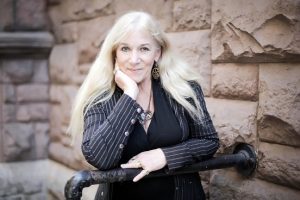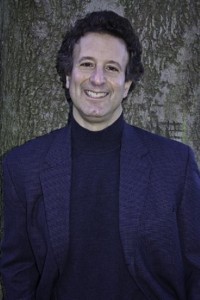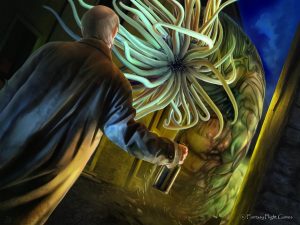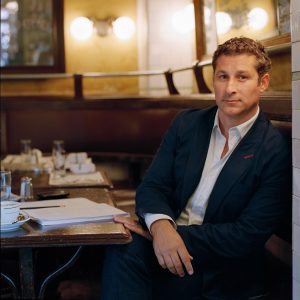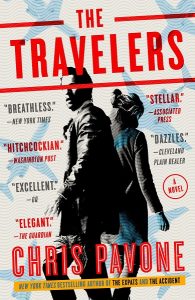Lisa Gardner is the bestselling author of eighteen previous novels, including her FBI profiler books which have been one of her most popular series.
Right Behind You opens with a brother and sister who have escaped from a childhood of abuse only to be separated by a foster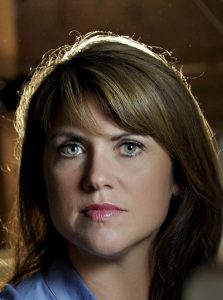 care system after their parents were killed. At 13, Sharlah May Nash is about to be adopted by retired FBI profiler Pierce Quincy and his partner, Rainie Conner. When a double murder is reported at a local gas station, the killer is identified as Telly, Sharlah’s older brother who hasn’t been seen or heard from since their parents’ murder. It seems he’s begun a killing spree and has fled into the Oregon wilderness. Sharlah questions if Telly is truly a killer, and needs to discover the truth. She also wants to find out what really happened in the murkiness of their violent childhoods.
care system after their parents were killed. At 13, Sharlah May Nash is about to be adopted by retired FBI profiler Pierce Quincy and his partner, Rainie Conner. When a double murder is reported at a local gas station, the killer is identified as Telly, Sharlah’s older brother who hasn’t been seen or heard from since their parents’ murder. It seems he’s begun a killing spree and has fled into the Oregon wilderness. Sharlah questions if Telly is truly a killer, and needs to discover the truth. She also wants to find out what really happened in the murkiness of their violent childhoods.
Right Behind You depicts, among other things, what criminal profiling is about. What exactly does a profiler do?
A profiler attempts to ascertain the identity of a criminal based on a series of probabilities and markers. A profiler can look at a crime scene and work backwards to determine the most likely psychology behind the person who committed the crime. From studies of serial killers—which serves as something of a data base—a profiler can begin sorting out probabilities such as the age, gender, occupation and living locale of the killer. So, of the seven billion people on the planet, the population of possible perpetrators is now reduced to let’s say, two-hundred people in a limited geographic area. It can be a great help to the police.
Right Behind You involves the search for a spree killer. How does a spree killer differ from a mass murderer or a ser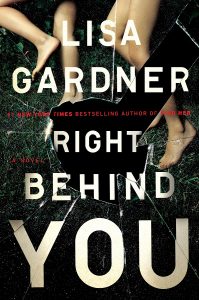 ial killer?
ial killer?
A serial killer kills more than three people in multiple locations over a longer period of time. A mass murderer kills multiple people in one location in a single explosion of violence. A spree killer, on the other hand, is essentially, a combination of both of these murderers: there are multiple fatalities in different locations in a short period of time. One of the hallmarks of a spree killer is that often, the first killing occurs close to him. It might be a domestic situation or workplace violence. There’s a great deal of bottled-up rage and in that final explosion, the killer does what he wanted to do all along, namely, pull that trigger. They basically have a psychotic break. They then become a danger to anyone unfortunate enough to cross their paths. That makes it a time-sensitive case because after that first killing spree, all bets are off.
The novel also describes different types of guns. How did you become so familiar with weapons?
Well, I live in New Hampshire [Laughter]. Most of my neighborhood is heavily armed [More laughter]. I owe a great deal of gratitude to my husband and my thirteen-year-old daughter. They’re both experienced target shooters. They not only walk me through those scenes but provide me with hands-on demonstrations. Guns are one thing I never quite get right. When I’ve gone shooting, I must confess, I don’t like the noise.
There’s lots of insight about troubled children, youthful offenders and childhood trauma in Right Behind You. Tell us how you learned so much about these compelling issues.
A personal theme that runs through all my books is what it means to be a survivor. It’s what Sharlah and Telly are struggling with in this novel. They struggled to survive as very young children, and that struggle still defines who they are.
I’ve been involved for thirteen years with local child services providers where we work with special needs kids, troubled children, and at-risk kids. Talking to social workers, knowing families who’ve gone through adoption, and who have fostered and then adopted kids with very troubled pasts has given me a background in all these issues.
Of course, trauma doesn’t evaporate just because a child finds a forever-home. It burrows deep beneath the skin. Even if a child is a survivor who wants to feel better, there’s no magic that can make the trauma disappear. Hearing those stories and learning about those journeys has made me appreciate how much love and work it takes to foster and adopt these kids. That’s what Rainie and Quincy deal with. They’re experienced profilers who have seen so much abnormal human behavior, and because of the starkness of their job, want to help save a life, which is why they adopted Sharlah.
It involves an enormous amount of day-in, day-out work. I have so much admiration for the foster families and adoptive parents who make it work for those children.
It’s clear you’ve done research for this novel. Your website has some great information about the do’s and don’ts of research. Will you share some of that with us?
When I was starting out as a novelist, I did an enormous amount of research for my first suspense book. I threw it all in the book. My editor at the time said it was ‘too much.’ It wasn’t entertainment. So, I heavily edited the manuscript. When I resubmitted it, she said, ‘There’s nothing in there.’ It was too sparse. Ever since then, I’ve been a ‘Goldilocks’ writer: the first draft has too much, the second has too little, but the third draft will be just right.
Of course, learning is easy, and I talk with experts, but I don’t want to snow the reader with too much research detail. I love the Hemingway quote: ‘You must learn the glacier to write the tip.’
Your novels depict great villains—or as you’ve put it, ‘The Diabolical Prima Donna.’ Tell us about that.
I think people love a good villain. The point of my essay is that in so many books and movies, the villain is the one who sticks with you. For me, a great suspense novel involves cat and mouse. If your detective is the cat, you’ve got to give him a worthy mouse. Otherwise, there’s no tension and the novel lacks excitement. You want a villain just as clever as your detective. I also think the villain must be complicated and have some compelling attributes. For instance, Ted Bundy stands out as the ultimate, real-life bogey man. He would slaughter poor young girls, yet wouldn’t drive an uninsured car. He was polite and adhered to nearly all of society’s rules of etiquette and propriety. That kind of complexity made him interesting.
What, if anything, do you read while writing a novel?
I read all the time. I even read the Cheerios box. I have a thirteen-year-old daughter who’s a huge reader and has introduced me to a number of amazing YA series. Many of them, like The Hunger Games, emphasize kick-ass heroines. I love reading suspense novels and especially enjoy reading books by Karin Slaughter, Tess Gerritsen, Joseph Finder, Lee Child, Harlan Coben, and my favorite new series right now is one by Greg Hurwitz. It’s sort of like Jason Bourne meets Jack Reacher.
I should say that while I’m writing a novel, I won’t read anything similar in tone or subject to what I’m writing. I think I would worry about my work being influenced or even polluted by the other novel.
What’s coming next from Lisa Gardner?
We last talked about Find Her. The reception for that novel was so good that Flora Dane, the survivor of having been held captive for four-hundred-seventy days, is coming back in my next novel.
Congratulations on writing Right Behind You, a gripping novel Harlan Coben called ‘taut psychological suspense, an intricate mystery, emotionally devastating, ultimately empowering.’ I concur with Harlan Coben, completely.
Mark Rubinstein’s latest book is Bedlam’s Door: True Tales of Madness and Hope, a medical/psychiatric memoir.





